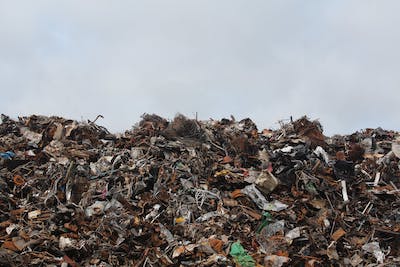A person who checks that websites follow rules in the UK says some big websites might have to pay money if they don’t tell people they can say no to cookies. Cookies are like little notes that websites put on your computer to remember things about you and show you special ads. The checker has told these websites they have 30 days to follow the rules. The rules say it should be as easy to say no to cookies as it is to say yes.
Websites use cookies to make money from ads, but sometimes people don’t like this because it feels like someone is watching them. Websites show a box that asks if you want cookies, but sometimes it’s hard to understand. The checker has told websites before that they need to make it easy to say no to cookies that show ads. People are also talking about making new rules so you don’t see the cookie box so much and websites can remember some things without asking.
The checker’s boss, Stephen, is worried that companies might use what they know about you without asking, like sending gambling ads to people who can’t stop gambling. In January, the checker will tell everyone about the websites that didn’t listen. They are doing this to help keep people safe when they see ads on the internet.
Original news source: Crunch time for cookie use, watchdog warns (BBC)
Listen
Slow
Normal
Fast
Group or Classroom Activities
Warm-up Activities:
– Charades
Instructions: Divide the students into small groups. Provide each group with a set of words related to the article. One person from each group will act out a word silently while the others guess what it is. The person acting out the word cannot speak or use any props. The group that guesses the word correctly gets a point. Repeat with different students acting out words.
– News Summary
Instructions: In pairs, students take turns summarizing the main points of the article to their partner. Encourage them to use their own words and keep their summaries concise. After each summary, the partner can ask questions for clarification. Switch roles and repeat the activity.
– Word Association
Instructions: Write the word “cookies” on the board. Ask the students to brainstorm and write down as many words as they can think of that are associated with this word. After a few minutes, have the students share their words with the class. Encourage them to explain the connection between the words and the main topic of the article.
– Vocabulary Pictionary
Instructions: Divide the students into pairs. Give each pair a set of vocabulary words from the article. One person from each pair will choose a word and draw a picture to represent it, while the other person tries to guess the word. They cannot use any written or spoken words. The pair that guesses the word correctly gets a point. Switch roles and repeat with different words.
– Speed Summarizing
Instructions: Write a few key sentences from the article on separate pieces of paper. Divide the students into pairs or small groups. Give each group a set of the sentence cards. Set a timer for a short amount of time (e.g., 2 minutes). The students must work together to arrange the sentence cards in the correct order to form a summary of the article. The group that finishes first with the correct order wins.
Comprehension Questions:
1. What does the person who checks websites in the UK do?
2. What are cookies and what do they do?
3. Why might some people not like cookies?
4. What did the checker tell websites to do with the cookie box?
5. What is Stephen worried about?
6. What will the checker do in January?
7. Why are they doing this to help keep people safe?
Go to answers ⇩
Listen and Fill in the Gaps:
A person who checks that websites (1)______ rules in the UK says some big websites might have to pay money if they don’t (2)______ people they can say no to cookies. Cookies are like little notes that websites put on your computer to remember things about you and show you special ads. The (3)______ has told these websites they (4)______ 30 days to follow the (5)______. The rules say it should be as easy to say no to (6)______ as it is to say yes.
Websites use cookies to make money from ads, but sometimes people don’t like this because it feels like someone is watching them. Websites show a box that asks if you want cookies, but sometimes it’s hard to (7)______. The checker has told (8)______ before that they need to (9)______ it easy to say no to cookies that show ads. People are also talking about making new rules so you don’t see the cookie box so much and websites can remember some things without asking.
The checker’s boss, Stephen, is worried that companies might use what they (10)______ about you without asking, like sending gambling ads to people who can’t stop gambling. In January, the checker will tell everyone about the websites that didn’t (11)______. They are doing this to help (12)______ people safe when they see ads on the internet.
Go to answers ⇩
Discussion Questions:
Students can ask a partner these questions, or discuss them as a group.
1. What is a cookie?
2. How would you feel if a website put cookies on your computer without asking?
3. Do you like seeing ads on websites? Why or why not?
4. Do you think websites should make it easy to say no to cookies? Why or why not?
5. How do you think websites make money from ads?
6. Do you think it’s important for websites to ask for permission before putting cookies on your computer? Why or why not?
7. How would you feel if a website showed you ads for something you don’t like, like gambling, without asking?
8. Do you think it’s fair for websites to remember things about you without asking? Why or why not?
9. How do you think the checker is helping to keep people safe on the internet?
10. What do you think the checker will do if websites don’t follow the rules?
11. Do you think it’s a good idea to make new rules about cookies on websites? Why or why not?
12. How do you think websites can remember things about you without showing the cookie box so much?
Individual Activities
Vocabulary Meanings:
Match each word to its meaning.
Words:
1. websites
2. cookies
3. ads
4. box
5. rules
6. checker
7. gambling
8. internet
Meanings:
(a) A place where you can find information and play games online
(b) A square shape on the screen that asks you a question
(c) Playing games where you can win or lose money
(d) Pictures or words that try to sell you something
(e) Places on the internet where you can find information
(f) Instructions that you have to follow
(g) A person who makes sure websites follow the rules
(h) Little notes that websites put on your computer to remember things about you
Go to answers ⇩
Multiple Choice Questions:
1. What does the checker check on websites in the UK?
(a) If they have good ads
(b) If they sell cookies
(c) If they follow rules
(d) If they have a lot of visitors
2. What are cookies?
(a) Little bugs that websites put on your computer
(b) Little toys that websites put on your computer
(c) Little notes that websites put on your computer
(d) Little books that websites put on your computer
3. What do websites use cookies for?
(a) To make money from selling cookies
(b) To make money from ads
(c) To make money from selling computers
(d) To make money from selling toys
4. Why don’t some people like cookies?
(a) They taste bad
(b) It feels like someone is watching them
(c) They are too expensive
(d) They are too big
5. What has the checker told websites to do?
(a) Make it easy to say no to cookies
(b) Make it hard to say no to cookies
(c) Make it easy to say yes to cookies
(d) Make it hard to say yes to cookies
6. What is Stephen worried about?
(a) Companies giving you free cookies
(b) Companies selling your information
(c) Companies making too much money
(d) Companies using what they know about you without asking
7. What will the checker do in January?
(a) Quit his job
(b) Start a new job
(c) Take a vacation
(d) Tell everyone about the websites that didn’t listen
8. Why is the checker doing this?
(a) To help keep people safe when they see ads on the internet
(b) To make money
(c) To make websites better
(d) To make people happy
Go to answers ⇩
True or False Questions:
1. Sometimes it’s hard to understand the box that asks if you want cookies on websites.
2. The checker has told websites before that they need to make it easy to say no to cookies that show ads.
3. The rules say it should be as easy to say no to cookies as it is to say yes.
4. Some big websites in the UK might not have to pay money if they don’t tell people they can say no to cookies.
5. The checker’s boss is unconcerned that companies might use what they know about you without asking, like sending gambling ads to people who can’t stop gambling.
6. Websites use cookies to make money from ads, but some people don’t like this because it feels like someone is watching them.
7. The person who checks websites in the UK has given these websites an indefinite timeframe to follow the rules.
8. Cookies are not like little notes that websites put on your computer to remember things about you and show you special ads.
Go to answers ⇩
Write a Summary:
Write a summary of this news article in two sentences.
Writing Questions:
Answer the following questions. Write as much as you can for each answer.
1. What are cookies on websites?
2. Why might some people not like cookies on websites?
3. What did the checker tell the websites to do about cookies?
4. Why is the checker’s boss worried about companies using people’s information?
5. What will the checker do in January to help keep people safe on the internet?
Answers
Comprehension Question Answers:
1. The person who checks websites in the UK makes sure that they follow the rules.
2. Cookies are little notes that websites put on your computer to remember things about you and show you special ads.
3. Some people might not like cookies because it feels like someone is watching them.
4. The checker told websites to make it easy for people to say no to cookies that show ads.
5. Stephen is worried that companies might use what they know about you without asking, like sending gambling ads to people who can’t stop gambling.
6. In January, the checker will tell everyone about the websites that didn’t listen.
7. They are doing this to help keep people safe when they see ads on the internet.
Go back to questions ⇧
Listen and Fill in the Gaps Answers:
(1) follow
(2) tell
(3) checker
(4) have
(5) rules
(6) cookies
(7) understand
(8) websites
(9) make
(10) know
(11) listen
(12) keep
Go back to questions ⇧
Vocabulary Meanings Answers:
1. websites
Answer: (e) Places on the internet where you can find information
2. cookies
Answer: (h) Little notes that websites put on your computer to remember things about you
3. ads
Answer: (d) Pictures or words that try to sell you something
4. box
Answer: (b) A square shape on the screen that asks you a question
5. rules
Answer: (f) Instructions that you have to follow
6. checker
Answer: (g) A person who makes sure websites follow the rules
7. gambling
Answer: (c) Playing games where you can win or lose money
8. internet
Answer: (a) A place where you can find information and play games online
Go back to questions ⇧
Multiple Choice Answers:
1. What does the checker check on websites in the UK?
Answer: (c) If they follow rules
2. What are cookies?
Answer: (c) Little notes that websites put on your computer
3. What do websites use cookies for?
Answer: (b) To make money from ads
4. Why don’t some people like cookies?
Answer: (b) It feels like someone is watching them
5. What has the checker told websites to do?
Answer: (a) Make it easy to say no to cookies
6. What is Stephen worried about?
Answer: (d) Companies using what they know about you without asking
7. What will the checker do in January?
Answer: (d) Tell everyone about the websites that didn’t listen
8. Why is the checker doing this?
Answer: (a) To help keep people safe when they see ads on the internet
Go back to questions ⇧
True or False Answers:
1. Sometimes it’s hard to understand the box that asks if you want cookies on websites. (Answer: True)
2. The checker has told websites before that they need to make it easy to say no to cookies that show ads. (Answer: True)
3. The rules say it should be as easy to say no to cookies as it is to say yes. (Answer: True)
4. Some big websites in the UK might not have to pay money if they don’t tell people they can say no to cookies. (Answer: False)
5. The checker’s boss is unconcerned that companies might use what they know about you without asking, like sending gambling ads to people who can’t stop gambling. (Answer: False)
6. Websites use cookies to make money from ads, but some people don’t like this because it feels like someone is watching them. (Answer: True)
7. The person who checks websites in the UK has given these websites an indefinite timeframe to follow the rules. (Answer: False)
8. Cookies are not like little notes that websites put on your computer to remember things about you and show you special ads. (Answer: False)
Go back to questions ⇧












